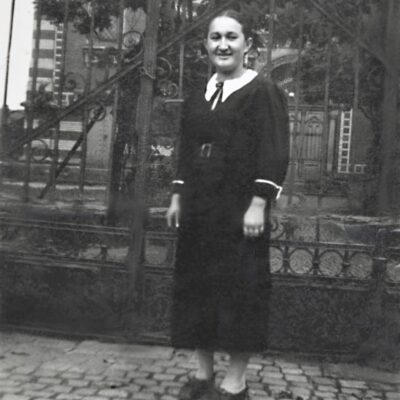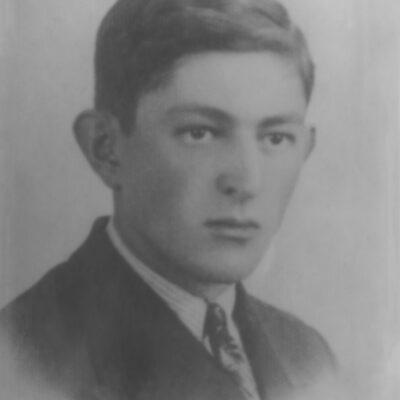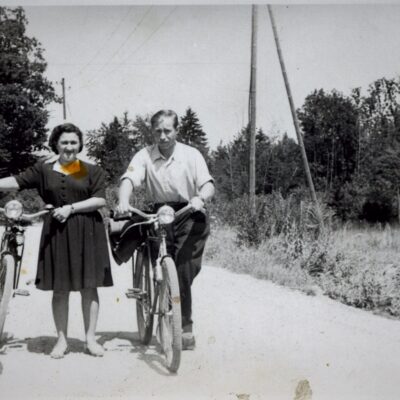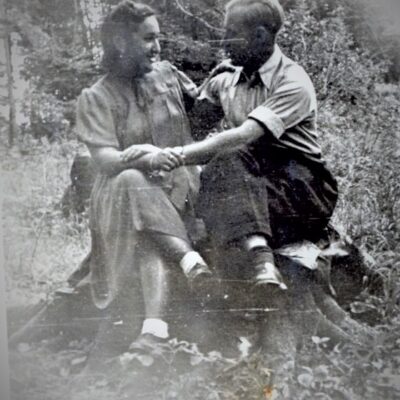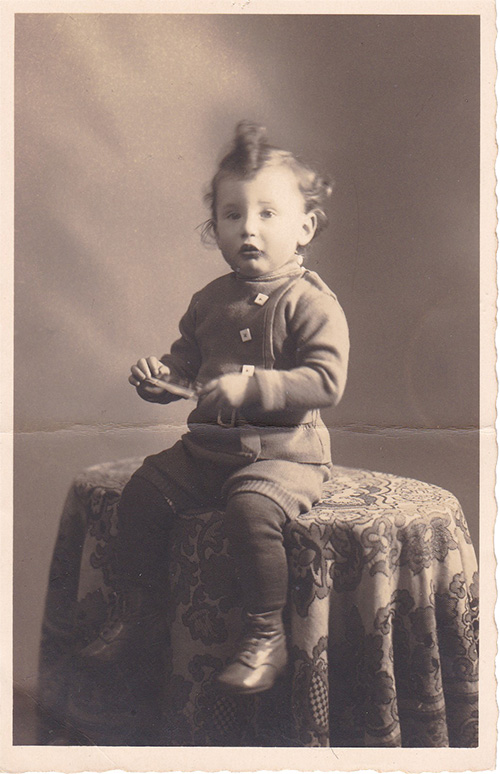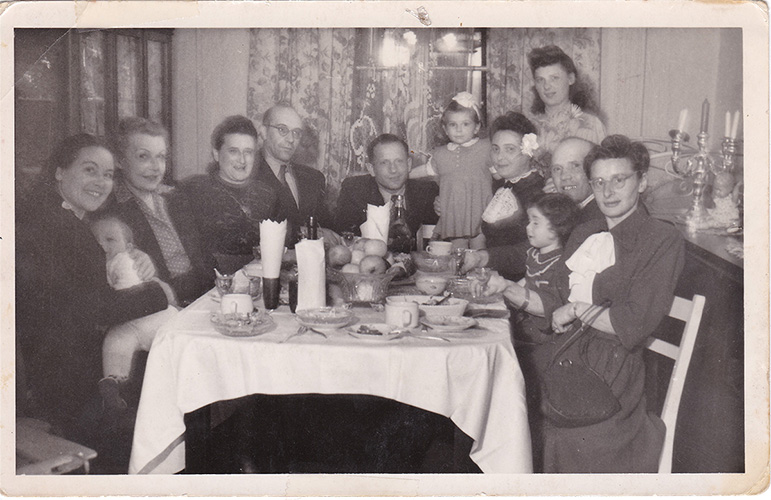Helen Fryszer Nagrodzki
Biography
Chaja Fryszer was born in Niwka, Poland, a small coal-mining village 80 km east of Krakow with a population of 3,100, including approximately 279 Jews. Her parents, Luzer and Laja, and brother, Pinchas, were Orthodox Jews living a simple traditional life. Luzer ran a butcher shop. In Niwka, everybody knew everybody. People got together and talked, and families were close. There were a lot of cousins and relatives nearby, and every Sunday, they visited her grandmother, who they called “Bubbe.”
Chaja was 16 years old in 1939 when the Germans invaded Poland. During the first few months of the occupation, Luzer was rounded up with other Jewish men in Niwka and sent to a forced labor camp. Over the next year, anti-Jewish decrees were put into place. Jews in Niwka were forced to wear a white armband with a blue Star of David and were forbidden from entering non-Jewish businesses. Streets and sidewalks were off limits for Jews, and a curfew for Jews was imposed. In October 1940, Chaja, her mother, and brother were sent from Niwka to the larger town of Sosnowitz (Sosnowiec) and became part of the unsealed Sosnowitz Ghetto.
On March 17, 1941, Pinchas was rounded up with other Jewish young men and sent to a forced labor camp. Chaja never saw her brother again. Chaja and her mother remained in Sosnowiec, where Chaja walked five miles each way to and from the coal mines where she worked eight-hour shifts shoveling sand.
In May, without warning, Chaja and seven other Polish Jewish teen-aged girls were selected and deported to Ober-Alstadt, a forced labor camp located in the former Sudetenland region of Czechoslovakia. They worked in thread factories where they steamed, dried, and rolled thread for German uniforms and other textile products. For the next two years, Chaja and her mother were able to write postcards back and forth.
Between October 1944 and May 1945, Chaja was transferred to a series of other Gross Rosen sub-camps, including Parschnitz, back to Ober-Alstadt, then to Trautenau, where she was liberated by Soviet troops on May 9, 1945.
Chaja spent several months rehabilitating at Langenbielau Displaced Persons (DP) Camp until she was able to travel back to Niwka in search of family; she found no one. She received word that three cousins had been liberated from Bergen-Belsen and were living at the DP camp by the same name, so she traveled there by train, staying for several months and continuing her search for the rest of the family. Chaja later said, “I missed my family. I thought I would find somebody and didn’t find anybody. This was the hardest thing.”
It is believed that Chaja’s father was murdered at Ludwigsdorf, a sub-camp of Gross Rosen, in March 1943. Chaja’s mother was most likely deported from the Sosnowiec Ghetto to Auschwitz-Birkenau, where she was murdered. The fate of Chaja’s brother has never been determined.
While at Bergen-Belsen, Chaja met Szymon Nagrodzki, a survivor who was living at Feldafing Displaced Person Camp in the American zone of occupation. After a brief courtship, Chaja and Szymon were married at Feldafing in July 1946. Their daughter, Cirla Mechla, named after Szymon’s mother and Chaja’s mother, was born at Feldafing in September 1947.
The Nagrodzkis remained in Feldafing until they immigrated to the US in October 1949, with the assistance of the Hebrew Immigrant Aid Society (HIAS) and the United Service for New Americans (USNA). Upon their arrival in New York, Szymon, Chaja, and Cirla were transferred to another ship, and sailed on to New Orleans, Louisiana. After spending several days in New Orleans, the Nagrodzki family boarded a train bound for Birmingham, Alabama, where sponsors from the local United Jewish Fund awaited them.
The Nagrodzkis settled in Birmingham and added to their family: Louise was born in 1952 and Paul was born in 1955. “I’m very happy in the United States, and the kids got a very good education,” Helen said. “I’m very proud of them.”
In a 1994 interview, Helen was asked what lessons from the Holocaust did she have for her children and grandchildren. She responded, “Iron…you are stronger than iron if you want to live.”
Photos & Documents
More Information
Laja Fryszer and Luzer Fryser Zylberberg
Pinchas Nagrodzki
(1921-?)
Szymon Nagrodzki
(1917 Drobin, Poland – 2003 Birmingham, AL)
Married July 20, 1946 in Feldafing, Germany DP Camp
Cirla (Shirley) Mechla Nagrodzki (Ernest M. Wilcher)
Born 1947 in Feldafing, Germany
Louise Nagrodzki (James Abroms)
Born 1952 in Birmingham
Paul Nagrodzki (Glenda Ethridge)
Born 1955 in Birmingham
Sosnowitz (Sosnowiec) Ghetto
(October 1940-May 1941)
Ober-Alstadt (subcamp of Gross Rosen)
(May 1941-October 1941)
Parschnitz (subcamp of Gross Rosen)
Trautenau (subcamp of Gross Rosen)
Trautenau
Langenbielau
Bergen-Belsen
Feldafing
(1946-1949)


